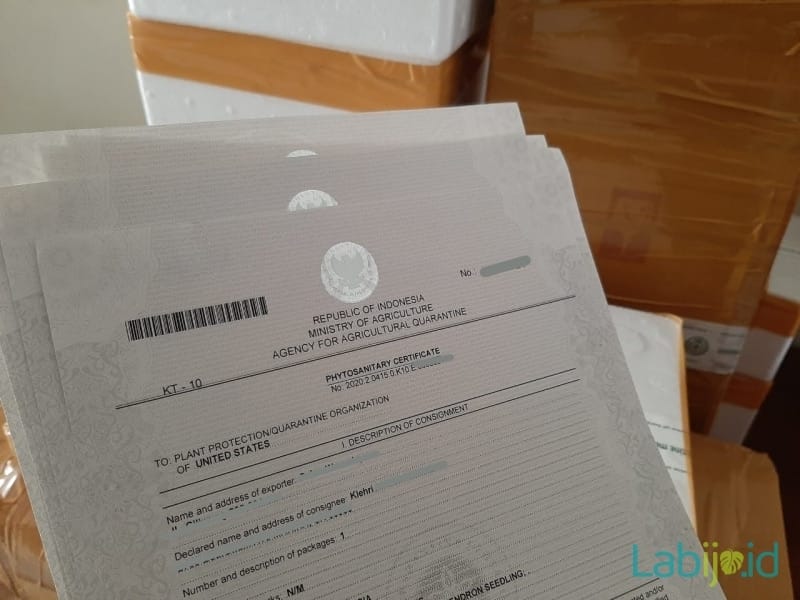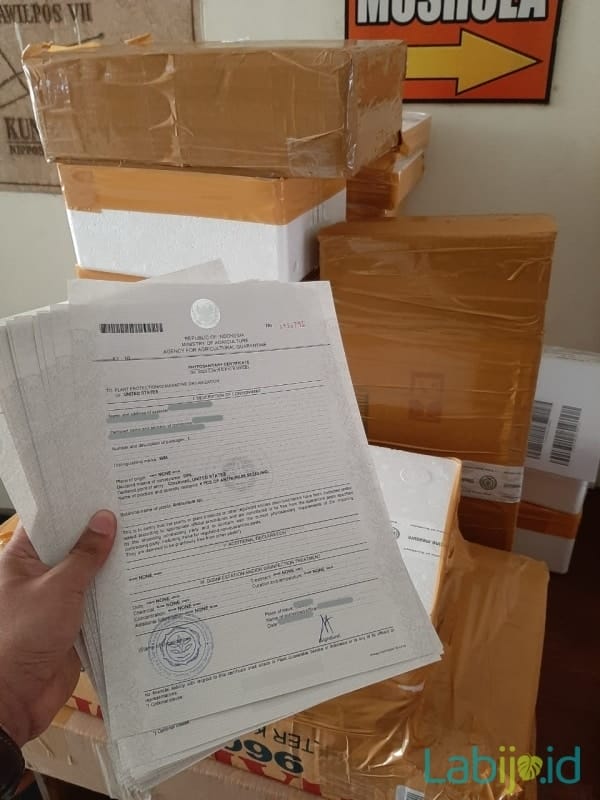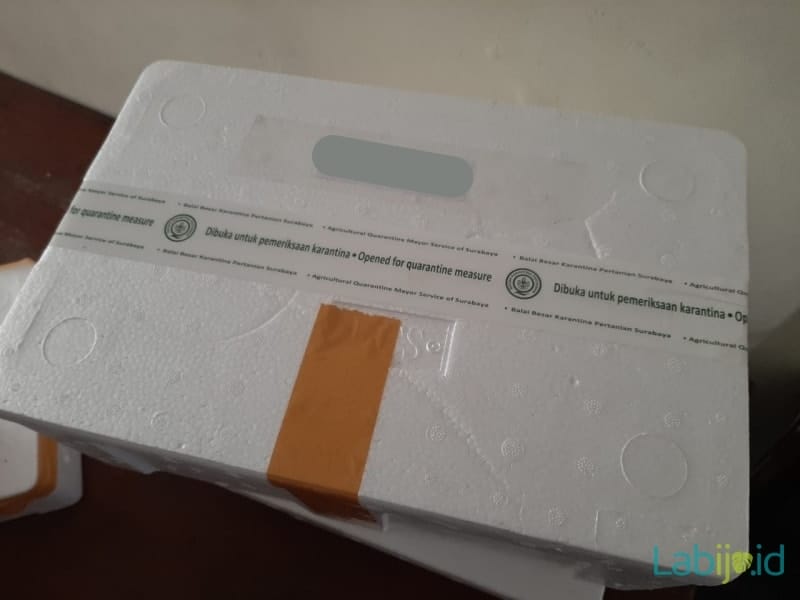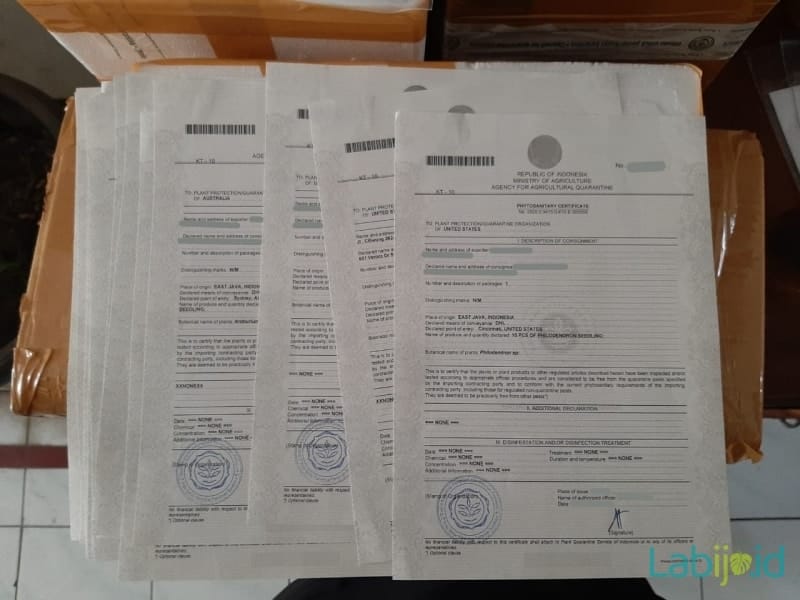Are you one of the plant-lovers who often shop for houseplants online especially from another country across the globe? If yes, we’re pretty sure that you must be familiar with several shipping requirements that must be fulfilled in order to receive your imported plants legally and safely, and one of them is Phytosanitary Certificate.
But what is that phytosanitary certification exactly?
What is a Phytosanitary Certificate?

Phytosanitary certificate is an official document that required when we send any plants and regulated to other countries. Phytosanitary certificate is made by the exporting country’s under department of horticulture, agriculture, food or water resources. This document will be issued by authorized goverment that authorized by of National Plant Protection Agency (NPPO).
What is a Phytosanitary Certificate for?

The main purpose of this phytosanitary certification is to show that the shipped plants are considered free from harmful pests and plant diseases. Obviously, meet specified phytosanitary import requirements. By it means, the shipped plants are healthy and don’t contain any harms to the importing country’s.
When is a Phytosanitary Certificate Required?

All the importer who sends commodities such as plants, fruits, vegetables, and growing medium required a phytosanitary certificate. If the shipper can’t provide a phytosanitary certificate to the importer, the goods will not pass through the customs at the airport. The goods will be destroyed.
Phytosanitary certificate contains specific information of about the shipment such as quantity, type and amount of packaging, the name of the sender and recipient, and so forth. All export and import commodities must have their health checked by the Quarantine Officer at their storage/stockpiling location. The quarantine actions have been adjusted to the policies adopted in the destination country.
What information is included in a Phytosanitary Certificate?

A Phytosanitary Certificate will have details such as:
- Shipper’s (Exporter’s) company name, address, and contact details
- Consignee’s company name, address, and contact details
- Place of origin
- Country of final destination
- Means of conveyance (road, rail, air, sea)
- Declared point of entry
- Reference Number
- Details of products included in the shipment – product name, quantity, botanical name, commodity code, and total mass.
- Treatment details including – date, treatment type, chemical, concentration, duration & temperature plus any additional information or declarations
- An authorized officer from the governing authority will sign and stamp the certificate
The Phytosanitary certificate is important. Worry not, that you don’t have to worry about this certificate since Labijo would take care of it whenever you buy any plants from us. The certificate is on us. You just stay back, relax, and wait the plants coming to your door. Start shopping!
